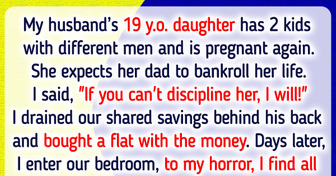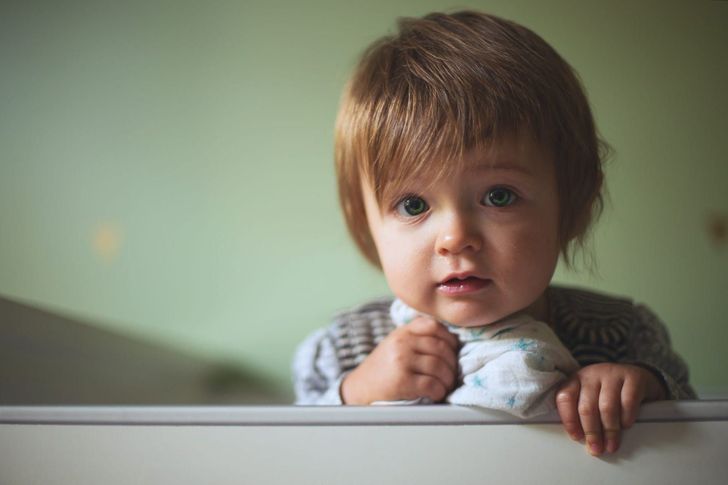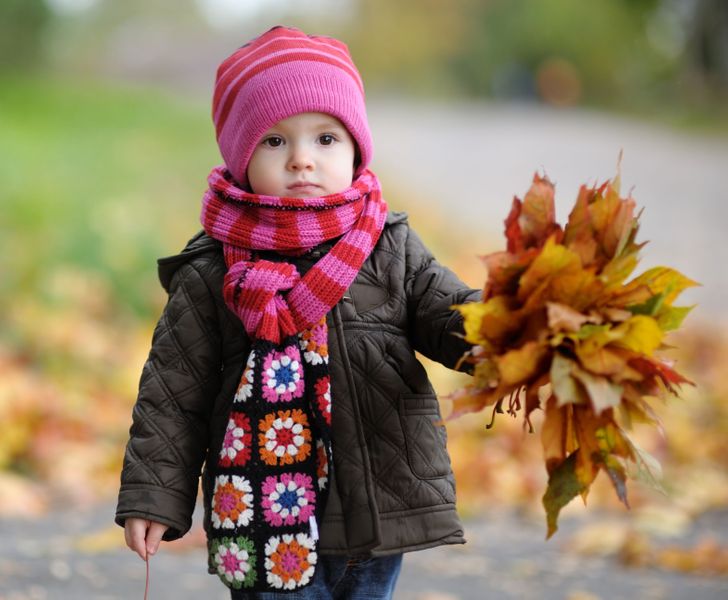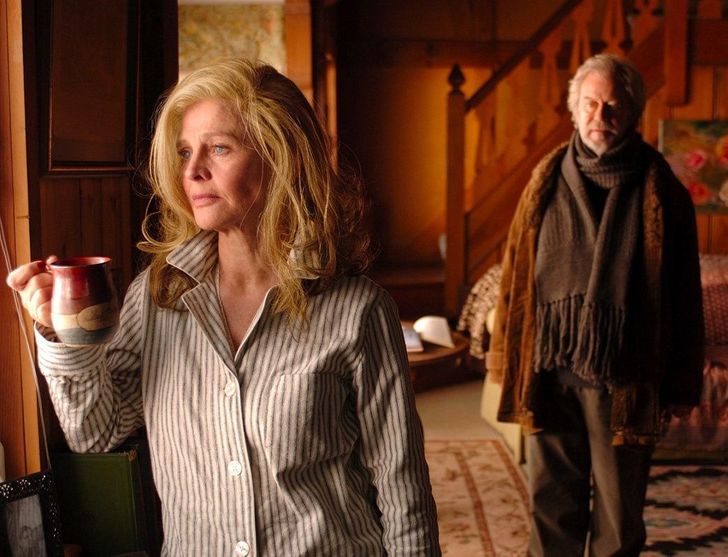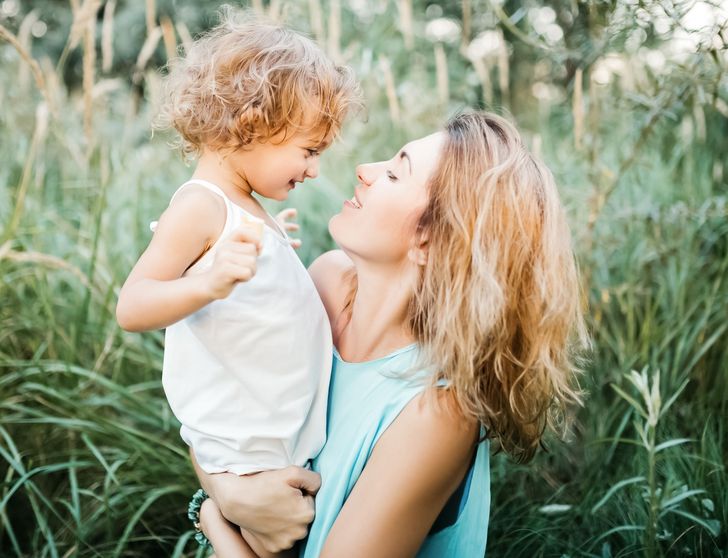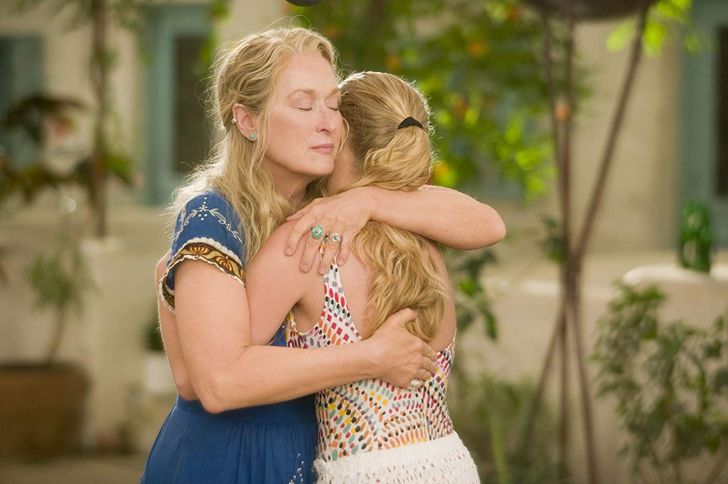very wrong western culture agenda... respecting parents is must
Why Kids Don’t Owe Anything to Their Parents
Life has changed and the familiar family structures have shifted too. That’s why, recently, philosophical literature has been avidly discussing the new, very real question: Can grown children ignore their filial obligation? This question appeared because many people are afraid to say “no” to their parents and are ready to sacrifice their own interests and dreams just not to hear their reproaches. For this reason, there are many people who don’t live the life they want and who become hostages of feelings of guilt and debt that are actually impossible to repay.
Bright Side decided to touch on this serious topic and help grown kids understand where that thin line between gratitude and voluntary self-sacrifice is.
I wouldn’t exist without you, but my birth was your choice.
The favorite phrase of manipulator-parents goes like this: “I carried you for 9 months, I didn’t sleep at night, and I never even left your crib — where is your gratitude now?” But those are pretty natural things that each woman who decided to become a mother does, aren’t they?
A kid doesn’t even suspect that they might have to pay back all the care and warmth they are getting now. And when they are asked to return the debt, the love for the parents will gradually start to fade away and a mutual reproach will arise that will later grow into a disappointment in each other.
Claims and demands for an adult kid appear when the birth of the baby was supposed to become a guarantor of certain expectations that were placed on this child. In loving families, caring is a natural thing and parents take care of the new family member as something natural, that’s why there won’t be any need to ask for a child’s gratitude in the future.
I have given you so much and I am sorry if that remained unnoticed.
From the very first minutes of their life, a kid gives their parents everything they have: their look, their hugs, their first words, their crafts, etc. But parents need to have the strength and desire to notice everything their kid does for them. If the little things go unnoticed and if adults are sure that it’s only necessary to fulfill their kid’s basic needs, it’s not surprising that this kid won’t feel a strong bond with their family in the future. Needless to say that the desire to take care of elderly parents might not appear at all. In the best-case scenario, the adult kid might continue to fulfill their parents’ basic needs by buying products, medicine, and paying for their communal facilities, while at the same time trying to show up in their home as seldom as possible.
Parents don’t always become your closest people.
Parents undoubtedly play an important role in each person’s life, but this doesn’t mean they are the only people in the whole world their kid can rely on. Unfortunately, the opposite situation might take place too — like when kids and parents have a misunderstanding, feel there is a lack of support, or that their parents are ignoring their issues. Additionally, critiques from parents can hurt even more than critiques from a stranger, and it worsens the situation even more.
Despite some people’s attempts to honor their parents no matter what, one should assess the situation soberly — if you are facing neglect, humiliation, and you don’t have a desire to share your worries with your parents, then this is not a relationship between loved ones. Don’t live in this illusionary world: if you were not supported from childhood, the odds are high that you won’t get any support in your adult life either. In this case, this person has the full right to refuse to support their parents because they never saw this support from them.
On the contrary, if a parent unconditionally gave all their love to a child, when the kid grows up, they won’t feel the need to repay something, and the manifestation of care from the kid’s side will become a natural expression of all those feelings that they have accumulated over the years.
There is a friendship theory that says kids should be giving the same things to their parents as they do to their friends, because friendship relationships are sustained voluntarily. If a parent and a kid don’t share emotions with each other, then there shouldn’t be any filial obligations.
I won’t become the person you want me to be.
Parents might have some ideas about your future, but they should never interfere with the realization of your own ideas. Being an adult means choosing your way by yourself and it can be similar to the life experience of your parents or it can be totally different.
From an early age, a kid knows what they want but if parents keep making choices for them, they will grow into an adult who will be scared of making mistakes and who will be always dependent on their circumstances and transfer the responsibility for their life to other people.
If you decide to give up on your own decision-making just for the sake of meeting your parents’ expectations, this means you’re pretending to be someone else — someone you actually are not. Sacrificing your dreams for family expectations is the best way to generate resentment, anger, and pain and live with these feelings for the rest of your life.
Healthy relationships in the family let us be ourselves. If your situation is different, it high time you discuss this and set boundaries.
I won’t give you my time.
Oftentimes, the wish to spend every second with their kid appears because parents don’t have their own goals and interests in life. And sometimes when a child grows up, this results in the parents demanding the same amount of focus on themselves as the kid had in their childhood.
However, if we’re talking about a normal situation, kids grow up and start their life, while parents stay with each other and their personal achievements for the entire growing-up period of the baby. The issue of the parents who didn’t want to settle in their life is that their grown kids, who want freedom, are now the “glue,” without which everything in the family will fall apart.
The kid will decide themselves what kind of help they are ready to give and demanding more from them doesn’t make any sense. No matter how many kids and grandkids a person has, they should, first of all, be able to take care of themselves on their own.
And I can’t give you back your time.
Being offended by the kid for not “paying off their expenses” appears in cases where a parent wasn’t able to realize their potential in their desired sphere, and it seems that the appearance of a baby “caused” them to lose all their potential and prevented them from reaching certain goals. A kid cannot return the time that a parent didn’t dare to spend on themselves.
Of course, within the first few years of a kid’s life, almost all the time of their parents is dedicated to them but the way parents manage their time in the future depends only on them. If for some reason, the role of being a parent didn’t bring them any pleasure, a parent might start to look for the guilty one who “stole the best years of their life.” This results in the appearance of the offense, as well as the demand for the kid to compensate for all the things their parents lost.
A few statistics
According to research by American sociologists, there is a big difference between the level of financial support that parents expect to receive and the help that children plan to provide: 92% of surveyed parents said that they don’t expect any financial support from their children in retirement, only 1% expect full support, 2% expect that their children will bear most of the costs, and 5% said that their children will provide support as needed.
Despite the fact that most parents don’t expect any support, 63% of kids said that they are planning to help their retired parents financially. 61% are ready to let their parents live with them when they stop working.
Conclusion
The best thing that parents can do for their kids is to give them freedom and the opportunity to live their life. If you let your kid learn from their own mistakes; if you respect your kid’s choice and wishes; if you support, help, and don’t impose your opinion, these kids will grow into people with a natural feeling of gratitude and responsibility. If at the same time parents were spending time on themselves, they will never have a feeling of living a “wasted life.”
Keep in mind that a kid copies the behavior of their parents — the very moment you need some help, look at your own reflection in the mirror and see what kind of person you used to be.
Do you think kids have filial obligations to their parents?
Comments
Umm, they said nothing about not respecting your parents. They only addressed the fact that sons and daughters shouldn’t have to “pay back” their parents for their parenthood, because the parents willingly CHOSE to take care of and provide for their children and therefore shouldn’t expect any payback. But this doesn’t mean that you don’t have to love and respect your parents.
I agree it just means that people should have a choice if they want to continue their relationship with their parents or not. In many cases, the parents are very toxic and manipulating but they still maintain a relationship with them due to the pressure put on them by society. I feel if someone is toxic, you should cut them off of your life 😊
Yeah for sure the worst type of parents are the ones that "decide" for you what kind of person you will be or should be. Some dads make their sons into the athlete they never were or whatever or they choose what the kid should study even before he or she is born.. it's really sad
For sure that is not the way to become happy, and any parent that thinks like this is rather selfish if you ask me
that's true
I'm glad that my parents didn't decide for me on what I should study or who I should become... I have a friend in my class who's parents did that and she always gets really low marks because the topics don't interested her, it's sad to see
Related Reads
I Refused to Attend My Son’s Wedding And Instead Spent the Day With His Ex-Wife

I Told My Mom Not to Attend My Wedding to Make My MIL Happy
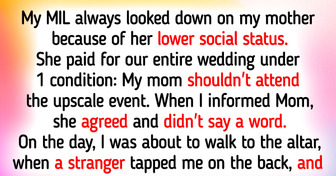
I Tracked My Daughter’s Phone and Discovered a Disgusting Secret

15 Family Secrets That Could Top Google Searches
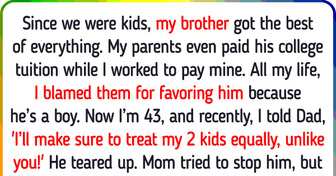
A Woman Decided to Test Her Future Daughter-in-Law, but She Chose the Wrong Person to Mess With
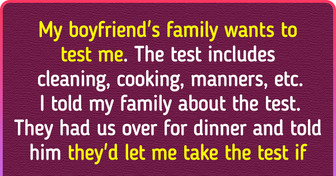
10 Tricky Riddles That’ll Leave You Puzzled
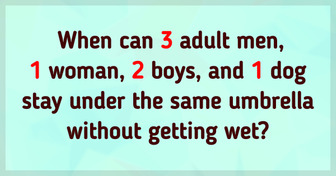
12 Children Whose Creepy Revelations Will Unsettle Even the Bravest Adults
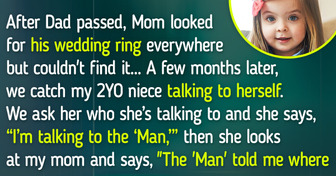
My SIL's Wedding Gift Left Me Humiliated and Crying on the Spot

18 Tweets Proving That Nothing Can Stop Real Love
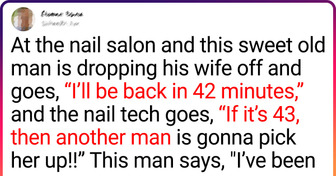
12 Wedding Stories Giving Reality TV a Run for Their Money
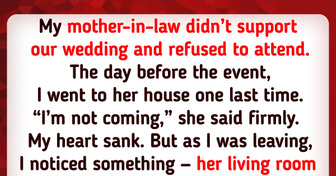
“He Got Himself a Younger Lisa,” Jason Momoa’s New Girlfriend Bears a Striking Resemblance to His Ex-Wife

I Refuse to Let My Irresponsible Stepdaughter Exploit Her Dad
